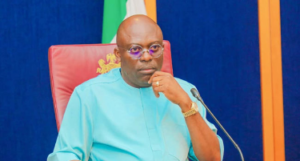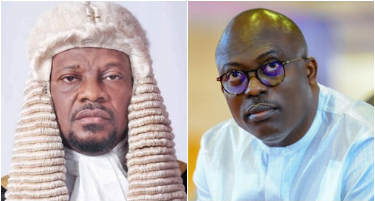The Rivers State House of Assembly, under the leadership of Martin Amaewhule, has issued a seven-day ultimatum to Governor Siminalayi Fubara, demanding he resubmit the 2024 budget to the Assembly. This directive was given during the Assembly’s first sitting after several months, reflecting the ongoing political tensions within the state legislature.
The situation is further complicated by the existence of two parallel legislative bodies. The pro-Wike faction, which held its session on Monday, is in direct opposition to another faction loyal to Governor Fubara. The rival assembly, led by Victor Oko-Jumbo, has been conducting its sittings separately, creating a bifurcated legislative environment in Rivers State.
Earlier, Governor Fubara had presented the budget to the faction aligned with him. This session was presided over by Edison Ehie, Fubara’s current Chief of Staff, who acted as Speaker. The pro-Fubara lawmakers swiftly passed the budget estimates, which the governor subsequently signed into law. Governor Fubara emphasized that the budget was designed to foster economic development, promote inclusive growth, and tackle socio-economic inequalities within the state.
 The directive from the Amaewhule-led House to re-present the budget underscores the deep-seated divisions and power struggles within the state’s political landscape. It highlights the challenges faced by the administration in pushing through its legislative agenda amidst such factionalism.
The directive from the Amaewhule-led House to re-present the budget underscores the deep-seated divisions and power struggles within the state’s political landscape. It highlights the challenges faced by the administration in pushing through its legislative agenda amidst such factionalism.
As the seven-day deadline approaches, all eyes are on how Governor Fubara will navigate this political impasse. The resolution of this conflict is crucial for the effective governance of Rivers State and the implementation of policies aimed at improving the welfare of its citizens.
The evolving situation in Rivers State is a stark reminder of the complexities and intrigues that often characterize Nigerian politics. It remains to be seen how the various stakeholders will reconcile their differences to ensure that governance and development objectives are not hindered by political discord.
Further updates will follow as more details emerge about the unfolding political dynamics and the implications for the state’s budgetary and legislative processes.




